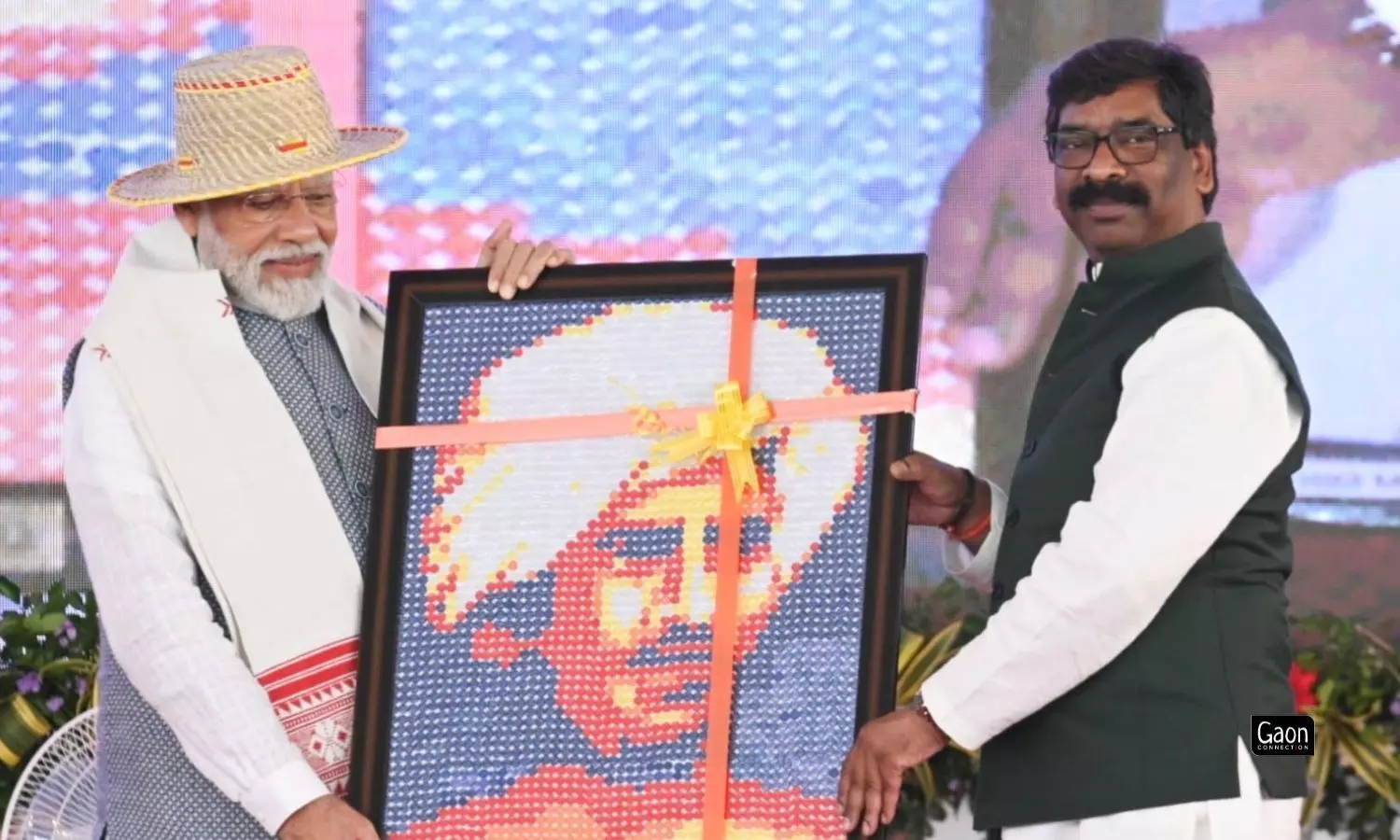Birsa Munda — ‘Dharti Aaba’ who Championed the Rights of Tribal People
Son of the soil, Birsa Munda, a revolutionary tribal leader of Jharkhand was born on November 15, 1875. Hailed as the ‘Father of the Earth’, his birthday is also celebrated as Jharkhand Foundation Day.
 गाँव कनेक्शन 15 Nov 2023 10:55 AM GMT
गाँव कनेक्शन 15 Nov 2023 10:55 AM GMT

It is the birth anniversary of Birsa Munda today, who is perhaps the most beloved of heroes in Jharkhand.
Today, November 15, is being celebrated as the Jharkhand Foundation Day, a state that was carved out of Bihar in November 2000. Prime Minister Narendra Modi is presently in Jharkhand to launch Rs 24,000 crore schemes aimed at supporting the welfare of tribal communities.
It is also the birth anniversary of Birsa Munda today, who is perhaps the most beloved of heroes in Jharkhand. A 19th century freedom fighter from the Munda tribal community, he is nothing short of a folk hero. And his birthday (15 November, 1875) is celebrated as Jharkhand Foundation Day. The state in eastern India was carved out of Bihar on November 15, 2000.
A 19th century freedom fighter from the Munda tribal community, he is nothing short of a folk hero.
Munda was only 24 years old when he died in prison in Ranchi.
Born in Ulihatu, Jharkhand (then part of the Bengal Presidency), and raised in the tribal belt of present-day Jharkhand, Munda lived an extraordinary life and mobilised his tribal community against the imposition of beliefs and customs that were sponsored by colonial rule. Jharkhand's folklore is replete with stories and songs of his valour.
Born in Ulihatu, Jharkhand (then part of the Bengal Presidency), and raised in the tribal belt of present-day Jharkhand, Munda lived an extraordinary life.
Munda spent much of his childhood moving from one village to another with his parents. He belonged to the Munda tribe from the Chotanagpur plateau area. He received his early education at Salga and his teacher Jaipal Nag was a great influence on him. On the recommendation of Nag, Birsa converted to Christianity in order to join the German Mission school. He, however, left the school after a few years. He decided he wanted to uphold his tribal identity in the face of the growing Westernisation.
Munda started a religious movement called ‘Birsait’ to bring back the people who had converted to Christianity, into the tribal fold.
Members of the Munda and Oraon communities joined the Birsait sect and this posed a formidable challenge to the British administration.
Also Read: The Sashastra Seema Bal is on an unusual mission in the village where Birsa Munda was born
Birsa Munda spent most of the years between 1886 and 1890, in Chaibasa which was close to the centre of Jharkhand's Sardari agitation, an outburst of protest by the tribals against persecution, humiliation and injustice meted out to them.
The agitation left a deep impression on young Birsa Munda who became a part of the anti-missionary and anti-colonial programme.
By the time he left Chaibasa in 1890, Birsa Munda was actively involved in the movement against the British oppression of the tribal communities.
On March 3, 1900, British police captured him from the Jamkopai forest in Chakradharpur.
He is known as the Dharti Aaba or Father of the Earth in Jharkhand.
Barely three months later, he died on June 9, 1900 in Ranchi jail.
Although the movement died out soon after his death, he managed to force the colonial officials to introduce laws protecting the land rights of the tribals, who for centuries have lived in harmony with the Nature.
No wonder then he is Dharti Aaba or Father of the Earth in Jharkhand.
#Jharkhandfoundationday #birsamunda #tribals
More Stories




